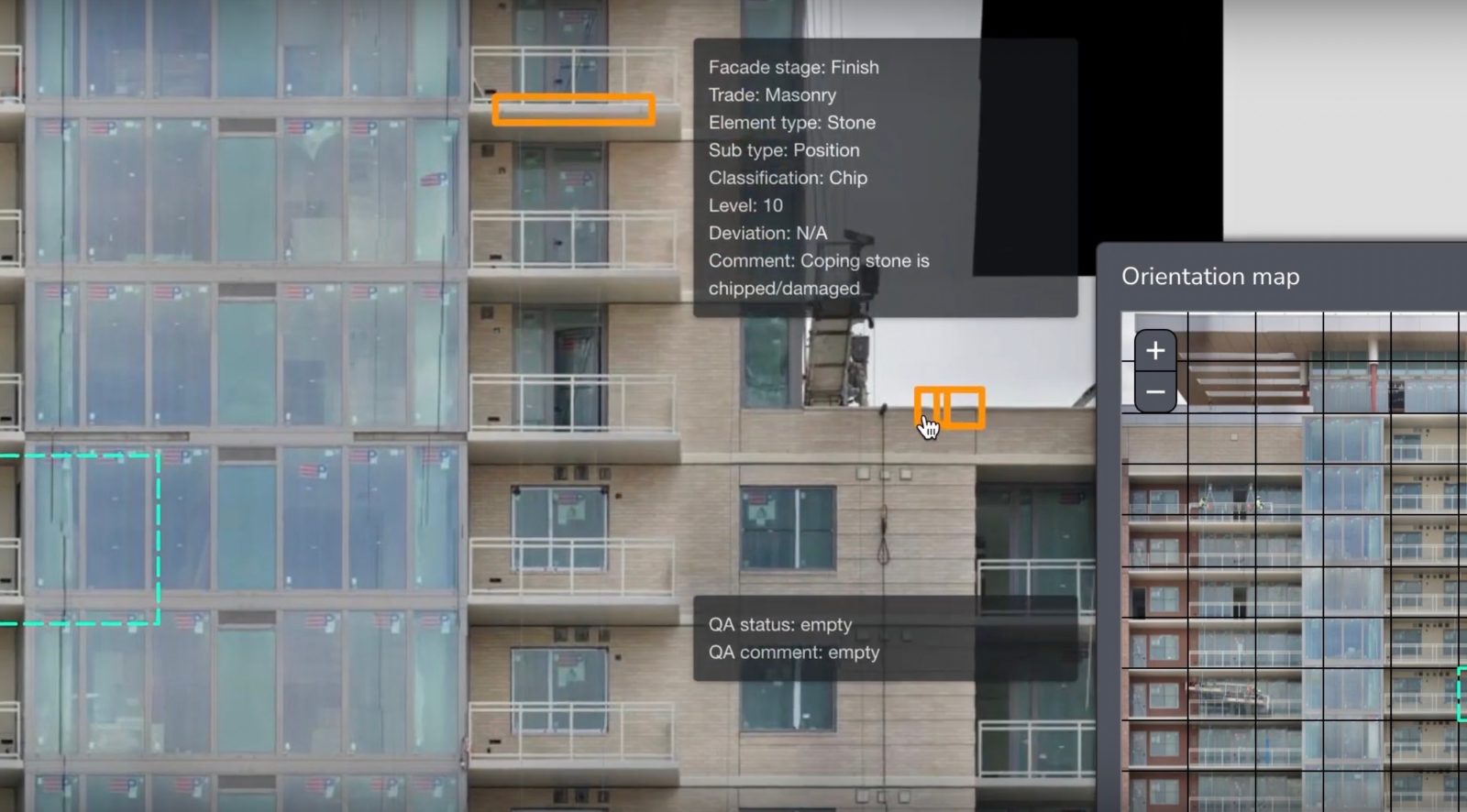
Construction sector tech services provider SiteAware has raised $15 million Series B funding to expand client adoption of its Digital Construction Verification platform, part of its aim to make the drone-linked, artificial intelligence-enhanced asset the new standard throughout the US building industry.
SiteAware’s Digital Construction Verification (DCV) system relies on a full range of building blueprint and specification data to create a model – something like an anticipated twin – of what the completed structure is designed to become. It then uses drones, on-site cameras, and people on the ground with sensors to continually collect information on the structure as construction progresses, which is compared against the computer clone of the expected final result. In doing so, DCV allows developers, contractors, and site managers to gauge both the pace and quality of work as it’s completed – alerting them to costly scheduling lags, and even costlier flaws needing correction.
Relying on the initial, digitally projected 3D model of the final building as its reference, DCV continuously takes in data as the site develops, providing real-time feedback of whether progress has strictly adhered to plans. When various AI-assisted applications turn up flaws or errors, the platform issues warnings to managers – as well as ways the shortcomings can be rectified fast and efficiently.
In that way, the turnkey DCV platform alerts planners to problems as soon as they arise, and avoids those being compounded by additional construction atop them. That automated scrutiny limits costs incurred by remedial work to errors detected early compared to efforts required when mistakes are discovered late in the game. That, in turn, minimizes unexpected and unwanted fees linked to late completion, and insurance and liability risks from defects.
DCV’s use of drones and ground cameras to reduce or eliminate such over-runs are no small consideration for construction projects. According to some estimates, those additional costs can increase the final price a property buyer pays by 10% to 30%, producing additional fees of $273 billion each year in the US alone.
“SiteAware’s DCV error prevention technology is disrupting the construction industry by dramatically accelerating schedules and streamlining work processes for all parties,” said Zeev Braude, CEO of SiteAware. “In the next few years, everyone from contractors to developers will be using DCV to build without rework. DCV gives the construction ecosystem access to data they’ve never had before, data that holds the key to the next jump in productivity for the industry.”
Despite the advantages DCV offers potential users, stakeholders in the construction sector of all sizes have been slow to adopt advanced tech solutions to mitigate problems they routinely encounter. That hesitation is in part what SiteAware will use its new funding to overcome, with aims of not only expanding its client list, but making DCV the industry standard for keeping projects on time and as close to flawless as possible.
“As the first mover in this new category, SiteAware is blazing a trail for the entire construction industry, allowing the sector to leverage technologies that will ultimately make it more efficient, more transparent and smarter,” said Emanuel Timor, general partner at the newly investing fund Vertex.
FTC: We use income earning auto affiliate links. More.


Comments